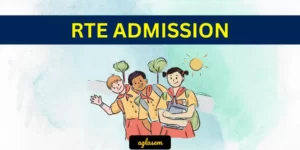rte up admission 2023-24 online date
The Right to Education (RTE) is a fundamental right guaranteed by Article 21A of the Indian Constitution, which states that every child between the ages of 6 and 14 years has the right to free and compulsory education. The RTE Act, enacted in 2009, aims to provide free and quality education to all children, particularly those from disadvantaged backgrounds, to ensure their holistic development and enable them to become active and productive members of society.
Key provisions and objectives of the RTE Act include:
- Free and Compulsory Education: The RTE Act mandates that every child in the specified age group has the right to free and compulsory education in a neighborhood school.
- Prohibition of Discrimination: The Act prohibits discrimination on the basis of caste, gender, religion, or socio-economic status in access to education.
- Quality Education: The RTE Act emphasizes the provision of quality education and mandates certain norms and standards for schools, including infrastructure, pupil-teacher ratio, and teacher qualifications.
- Reservations and Quotas: The Act provides for reservations and quotas in private schools for children belonging to economically weaker sections (EWS) and disadvantaged groups (DG). Private schools are required to reserve 25% of their seats for these children.
- Role of Local Authorities: The Act assigns responsibilities to local authorities, such as District Education Officers and Block Education Officers, for the implementation and monitoring of RTE provisions at the grassroots level.
- Teacher Training and Development: The Act emphasizes the training and professional development of teachers to enhance their teaching skills and ensure effective classroom practices.
- Parental and Community Participation: RTE encourages parental and community participation in school management committees and decision-making processes to promote transparency and accountability in education.
Overall, the RTE Act represents a significant step towards achieving universal access to education and addressing socio-economic disparities in India. However, challenges remain in its effective implementation, including issues related to infrastructure, teacher shortage, quality of education, and monitoring mechanisms. Efforts continue to be made at various levels to address these challenges and ensure that the goals of the RTE Act are realized.

